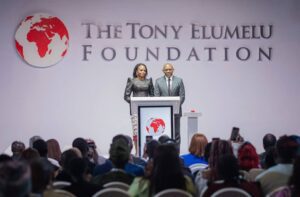
In the vibrant city of Accra, Ghana, lives Kofi Mensah, a dedicated health enthusiast and tech entrepreneur. Kofi’s journey into the intersection of technology and health began after witnessing the rising rates of non-communicable diseases like diabetes and hypertension in his community. Determined to make a change, Kofi embarked on a mission to harness technology to foster healthier living.
Kofi’s initiative, HealthLink Ghana, is an innovative platform designed to integrate mobile technology with health education. The platform provides users with tailored wellness plans, virtual consultations with health professionals, and real-time tracking of fitness goals. Through an intuitive app, users can access information about nutrition, exercise routines, and mental well-being, all personalized to their individual needs.
The success of HealthLink Ghana soon attracted attention beyond the borders of Ghana. In Nairobi, Kenya, Amina Njeri, a nutritionist and public health advocate, was exploring ways to address the nutritional challenges faced by her community. Amina observed that many Kenyans struggled to access accurate dietary information and needed a practical solution to improve their eating habits.
Inspired by Kofi’s work, Amina partnered with HealthLink Ghana to develop a specialized module for her region. Together, they created the “NutriTrack Kenya” feature, which offers localized dietary recommendations and integrates with local food databases. This module allows users to scan barcodes of food items to receive instant nutritional information, helping them make informed choices.
The collaboration between Accra and Nairobi exemplifies how technology can transcend borders to address common health issues. However, the journey did not end there. In Lagos, Nigeria, David Okoye, a fitness coach and tech enthusiast, was determined to tackle the growing problem of sedentary lifestyles among urban dwellers. David noticed that despite the availability of gyms and fitness centers, many people were not engaging in regular physical activity due to busy schedules and lack of motivation.
David launched FitLagos, an app designed to provide personalized workout routines and fitness challenges. FitLagos also incorporates gamification elements, allowing users to earn rewards for achieving fitness milestones. By integrating social features, users can join virtual fitness communities, participate in group challenges, and share their progress, fostering a sense of accountability and motivation.
As FitLagos gained traction, David sought to enhance its impact by collaborating with local influencers and fitness experts. Together, they created engaging content and virtual fitness events, encouraging more Lagosians to embrace an active lifestyle. The success of FitLagos demonstrates how technology can be used to create engaging and accessible fitness solutions.
In Johannesburg, South Africa, Thandiwe Dlamini, a mental health advocate, recognized the growing need for mental health support in her community. Despite the progress in mental health awareness, many people still faced barriers to accessing professional help. Thandiwe decided to address this issue by leveraging technology to offer mental health resources and support.
She launched MindCare South Africa, an app that provides users with access to mental health resources, self-care tools, and virtual counseling services. The app also features educational content about mental health, coping strategies, and stress management techniques. By making mental health support more accessible, MindCare South Africa aims to reduce the stigma associated with mental health issues and promote overall well-being.
The success of MindCare South Africa inspired similar initiatives across the continent. In Dakar, Senegal, Amadou Ndiaye, a public health researcher, sought to address the challenges faced by rural communities in accessing health information and services. Amadou recognized that traditional methods of outreach were not sufficient to reach remote areas with limited infrastructure.
To address this challenge, Amadou developed the “HealthReach Senegal” project, which utilizes mobile technology to deliver health information and services to rural communities. Through a network of mobile health units equipped with tablets and internet connectivity, HealthReach Senegal provides education on preventive health measures, conducts screenings, and offers telemedicine consultations. This innovative approach has significantly improved access to healthcare services in remote regions.
In the bustling city of Addis Ababa, Ethiopia, Mulugeta Bekele, an agricultural scientist, explored the potential of technology to promote healthy eating habits by improving access to fresh produce. Mulugeta’s initiative, AgriTech Ethiopia, uses technology to connect farmers directly with consumers through an online marketplace. This platform allows users to order fresh fruits and vegetables from local farmers, ensuring that they have access to nutritious and affordable food options.
AgriTech Ethiopia also provides educational resources about the benefits of consuming locally grown produce and offers recipes and meal plans to encourage healthier eating habits. By bridging the gap between farmers and consumers, AgriTech Ethiopia contributes to improving the overall health and well-being of the community.
The collective efforts of these innovators across Africa highlight the transformative potential of technology in promoting healthy lifestyles. From mobile health platforms and fitness apps to mental health resources and agricultural innovations, technology is playing a crucial role in addressing health challenges and improving quality of life.
As these initiatives continue to evolve and expand, the potential for technology to drive positive change in health and wellness is boundless. By leveraging technology to provide accessible, personalized, and engaging solutions, communities across Africa are embracing a healthier future.
The stories of Kofi, Amina, David, Thandiwe, Amadou, and Mulugeta exemplify the power of technology in fostering healthier lifestyles. Their innovative approaches and collaborative efforts are paving the way for a brighter, healthier future for people across the continent. Through technology, Africa is not only addressing its current health challenges but also setting the stage for a more sustainable and healthy future for generations to come.
Source: African Publicity & Ghanaija








